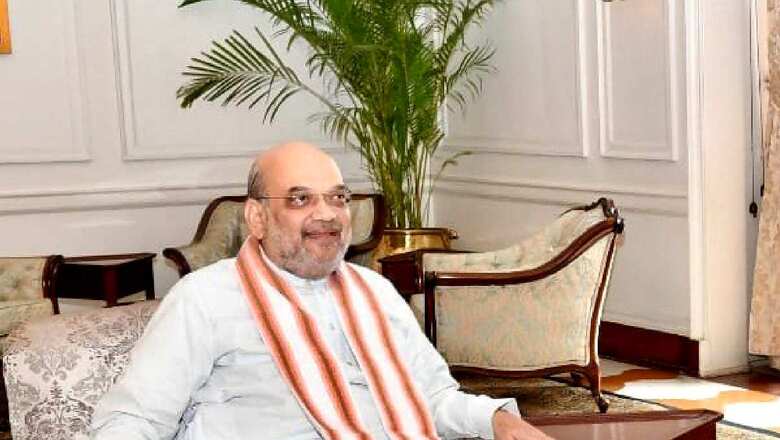
views
We are using only 5 per cent of the potential of our country, if we are not teaching and learning in local Indian languages, said Home Minister Amit Shah while delivering his address on the second anniversary of the announcement of the National Education Policy (NEP) 2020. If we are teaching in English only, we are reaching only five per cent of the students in a class, said Shah.
One of the biggest criticism that NEP has faced is becuase of its focus on offering education in Indian languages. The government maintains that teaching in the mother tongue will ensure easy understandability as well as ensure no one is discriminated against in colleges or at the time of employment because of their language skills. A large section of educationists, however, claims that the policy is a move to nationalise use of Hindi. They also claim that it is regressive as Indian youth will lose international opportunities.
Also read| NEP 2020 Rooted in ‘Bharatiyata’ While Assimilating Global Perspective: Amit Shah
Addressing the gathering, Shah said, “I have seen the top lawyers lack behind only because they do not know how to speak English fluently.” He said the aim of teaching in a regional language is to eliminate such misfortune from happening to future generations.
Shah said that India has limitless capabilities but we have ‘limited’ ourselves. “If the knowledge is available in Indain languages then 100% of India’s capabilities can be used for the development of the country.”
He further congratulated PM Modi and Education Ministry for conducting engineering and medical exams – JEE and NEET – in local languages. The second largest exam in India CUET which is applicable for admission to top colleges was also conducted in Indian languages. Holding such high-stake exams in multiple languages is an indication that India moving ahead, said the Home Minister.
At the event, Shah launched three initiatives. The first initiative launched on the second anniversary of NEP was the partnership between IGNOU with skill development institutes. Under the partnership, 32 National Skill Training Institutes (NSTI) 3,000+ Government Industrial Training Institutes (ITI), 500+ Pradhan Mantri Kaushal Kendras (PMKK) and nearly 300 Jan Shikshan Sansthan (JSS) will be associated with IGNOU as Registration Centres, Examination Centres and Work Centres for hands-on training.
The Home Minister also announced Skill Hubs under Pradhan Mantri Kaushal Vikas Yojana (PMKVY). . Under this, higher education institutes are extending their premises as Skills Hub so as to maximize the capacity for delivering skill development courses. Under it’s pilot programme, close to 2000 Skill Hubs have been set up with more than 1.53 lakh candidates who have been trained till date.
Further, over 100 National Skills Qualifications Framework (NSQF) aligned future skill qualifications to be developed under six key areas including automation in Industries (Manufacturing/Service) and Industry 4.0, infrastructure connectivity (EVs and Drones), electronics manufacturing & VLSI, technology infrastructure including 5G & cyber security, digital emerging technologies, indigenous R&D. These Qualifications range from foundation level courses to long term trainings.
Read all the Latest News and Breaking News here



















Comments
0 comment